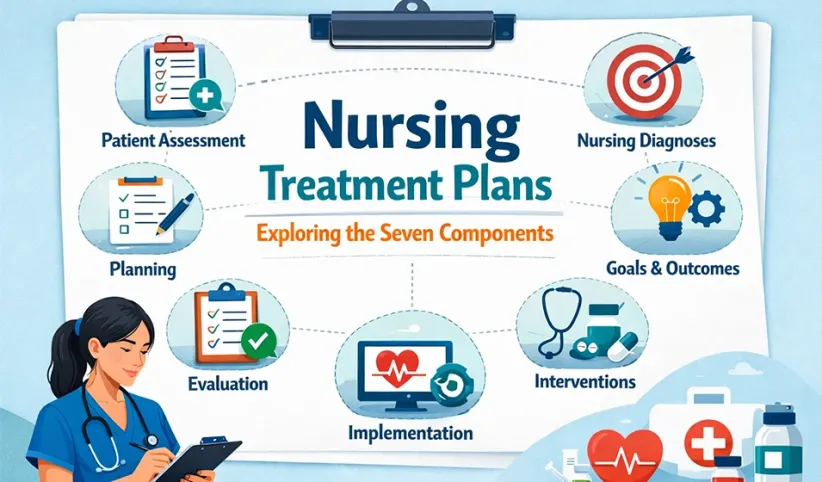In the fast-paced, demanding field of healthcare, nursing stands out as a career marked by its tense working environment and emotionally tiring care.
So, this phenomenon is usually known as nurse burnout. This leads nurses to become stressed and decrease the quality of care.
It is crucial that you not only grasp the burnout. But then, grasp how to prevent the burnout.
A credible study indicates that more nurses are recently reaching their limit. With 56% of nurses reporting burnout and 64% stating that they experience "a great deal of stress because of their job," fatigue is a common problem.
So, in this article, we explore the ways to stop the burnout and classify clear signs that burnout is taking hold. Also, guide effective techniques to stop the burnout.
The Value of Handling Burnout in Nurses
Nurse burnout has an influence on patient safety, raises the risk of medical errors, and raises turnover rates, among other things.
Hence, it places a financial and operational strain on healthcare facilities.
It is more important than ever to address nurse burnout because of the rising demand for healthcare services worldwide, mostly in the wake of recent public health emergencies.
Also, keeping a strong, resilient workforce that can adjust to the changing demands of contemporary healthcare requires preventing burnout.
Identify the Symptoms of Burnout in Nurses
Recognizing burnout is the first step in dealing with it. These are compassion fatigue, cerebral tiredness, sleep difficulties, physical and emotional exhaustion, and a persistent feeling of being depleted, just a few of the signs that can indicate nurse burnout.
It can also lead to feelings of weakness when improving your settings. Also, it cynicism about your job, self-doubt about your skills, and a loss of drive.
These symptoms can worsen into more severe physical ailments, reduce output, raise truancy, and possibly cause worry and despair if they are not treated.
Here are the most common symptoms of nurse burnout
- Chronic fatigue
- Anxiety or depression
- Feeling tired or devalued
- Loss of interest in work
- Increased petulance or impatience with coworkers or patients
How Employers can Tackle and Stop Nurse Burnout
Leaders, managers, and employers are crucial in foiling nursing burnout. But firms are not the only ones who benefit from preventing burnout.
Also, it can contribute to better patient outcomes. Nurses who are emotionally and physically exhausted may find it difficult to give patients the same level of care they used to.
Below are a few ways that bosses and nurse managers can tackle nurse burnout. In the meantime, if you need any help with your essays. Or any kind of expert support in your studies, do not be afraid to reach the best Nursing Assignment Writers UK. These writers will aid you in your journey.
- Create a self-care part of the company culture- Self-care motivates a nurse to pay extra attention to their own physical, mental, and emotional safety if it is supported by making a self-care routine. Or offering resources for opposite, alternative, and integrative healthcare practices. So, self-care must be maintained for the duration of the firm culture
- Offer wellness chances- Bosses must offer wellness chances for nurses, such as exercise programs, paid volunteer time, or offer them counselling services. As a result, these programs may offer benefits and reduce nurse burnout.
- Find out what the nurses need. Managers should consult nurses before executing changes to workplace policies. By finding out what nurses need to reduce stress at work, management may better satisfy the needs of their staff and show that their views are valued.
Key strategies to prevent nurse burnout and improve mental health
1. Self-care Routine
Being a nurse, you will need to get at least 7 hours of sleep and eat a healthy diet. Also, do regular exercise to keep yourself healthy.
2. Mindfulness and Calm
To prevent nurses from burning out, you will need to employ certain methods. These are progressive muscle relaxation, meditation, and deep breathing exercises.
3. Learn Time Management Skills
Being a nurse, it is vital that you learn effective time management skills. These are creating reasonable aims and splitting your work into edible portions.
After that, you will need to take regular breaks.











